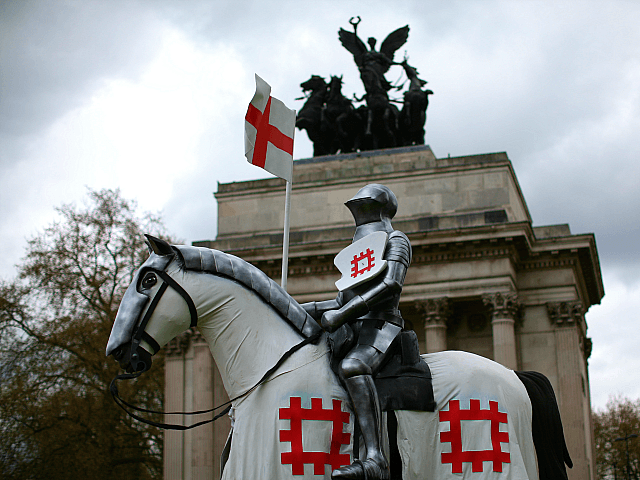Health Secretary Matt Hancock thanked Muslims for their Ramadan “sacrifice” on St George’s Day, but made no mention of the English national day itself.
Hancock, who as Secretary of State for the Department of Health and Social Care has arguably played the leading role for the British government in Boris Johnson’s absence — although the Prime Minister’s official substitute is Dominic Raab — neglected to mark St George’s Day in any way, or to offer a message to English citizens prevented from celebrating it properly by the lockdown regulations.
The beginning of the Islamic month of Ramadan, which fell on the same day, was another matter, however, with Hancock posting a video message thanking them effusively for their co-operation with the lockdown.
“This Ramadan, many Muslims who serve their country in the NHS [National Health Service] and in the Armed Forces and in so many other ways will not be sharing the joy of this month as they normally do,” he said.
“I want to say to all British Muslims, thank you for staying at home. I know how important the daily Iftar is, how important communal prayer is at night, and how important the Eid festival is.”
A St George’s cross flag — the flag of England, one of the four home nations that constitute the United Kingdom — did fly over Downing Street on Thursday, as has been customary every year at least since the last Labour government.
Commenters on social media who suggested Hancock had ignored Easter as well as St George’s Day were mistaken, however, as he did post a message wishing “everyone” a Happy Easter and thanking “everybody who is following the social distancing rules” at the time — although he appears to have made no specific reference to Christians, people being unable to attend church services, or any of the other important religious aspects of the holy day.
St George’s Day was marked by the Guardian with the now annual and almost traditional article labouring the point that St George was a foreigner from “modern-day Turkey” — although he lived hundreds of years before the Turks conquered and colonised the area — and to scoff at the legend that he slew his famous foe at Dragon Hill in Oxfordshire.
The Guardian neglected to mention that St George became England’s patron not because he was mistakenly believed to be English, but because an apparition of the saint was said to have aided a Crusader army at the Siege of Antioch against the Seljuk Turks, who had recently taken it from the Byzantines.

COMMENTS
Please let us know if you're having issues with commenting.